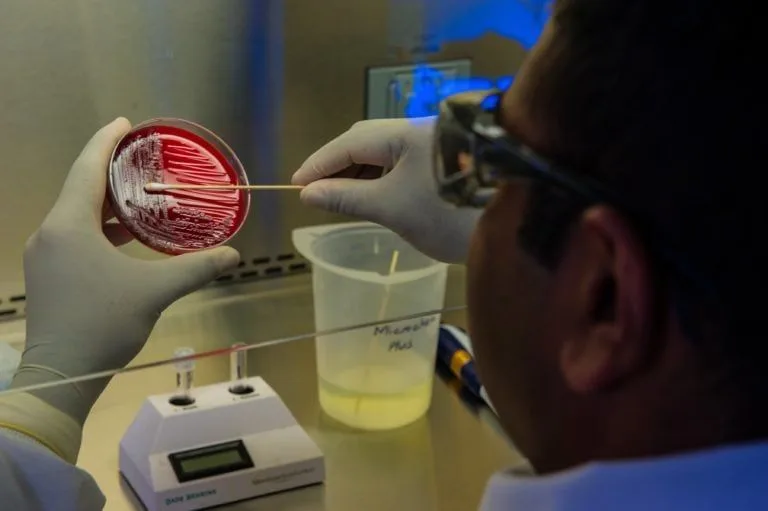
Top Discoveries by Oxford Professors: Groundbreaking Research
From various theoretical and psychological concepts to scientific breakthroughs, the University of Oxford has been home to a whole range of inventions and discoveries over the years that have improved life for mankind.
We’ve compiled 8 of the most remarkable discoveries and inventions to have been developed by professors and fellows at the University of Oxford.
1. No-needle injections
In 1993, during his time at Magdalen College, the British Professor and Fellow, Brian Bellhouse, paved a new way of being able to give medications and vaccinations without having to use needles.
Known as PowderJect, the new method - which is still used today - involves shooting a high pressure burst of powder into the skin which is supposed to be completely pain free.
2. Antibodies
In 1967, Rodney Porter, a British biochemist practicing at the University of Oxford, and his colleague, the American physician Gerald Edelman, after building on previous scientist’s work, helped to uncover the secret as to how our body defends itself with antibodies.
The pair received the 1972 Nobel Prize in Physiology or Medicine for their work in unveiling the structure of antibodies and showing how they bind together to create a successful defence from disease.

3. Atomic scale defects in metals
Peter Hirsh, an Emeritus Fellow at St Edmund Hall is a materials scientist who, in 1956, pioneered the first observation of the motion of tiny dislocations in the atomic structure of metals.
By using a transmission electron microscope, he found that these dislocations take place in thin foils, and the discovery has helped over the years to explain how we control the deformation of plastic in metals.
4. Election swing and other voting trends
Created by political scientist Sir David Butler and his team at the University of Oxford, the academic concept of an ‘election swing’ shows the extent of change in voter support for a political party or candidate, typically between elections.
This is then converted into a positive or negative percentage and is then used as a way for understanding what predictions can be made about elections and why they turn out the way they do.
5. Penicillin
Since its discovery, penicillin has been thought to have saved over 200 million lives across the globe.
Howard Florey and Ernst Chain from the University of Oxford were some of the leading pioneers in its discovery. Building on Alexander Fleming's early discoveries, they became the first two scientists to have worked on a clinical patient trial which proved how effective penicillin was against fighting bacterial infections.
Professor Dorothy Hodgkin, another British chemist, also worked on some ground-breaking penicillin developments during her time at the University of Oxford. She was able to successfully map out the structure of the compound, leading to further work and developments on the mass production of penicillin. However, it wasn’t until she mapped the structure of the vitamin B12 that she was then awarded the Nobel Prize for Chemistry.

6. Weather predictions
Professor Fred Taylor has spent forty years working on satellite meteorology at the University of Oxford.
In the 1970s, he pioneered a technique known as ‘infrared remote sensing.’ This technique involves using infrared radiation that’s emitted from the Earth’s surface and then using satellite remote sensing for measurements of the earth’s land and sea surface temperatures, as well as for the detection of forest fires.
More recently, it was also used in the 1990s to detect the growing hole in the Earth’s ozone layer, which has led to huge advances in the way we perceive and care for the environment.
7. Lithium-ion batteries
Also to have been invented in the 1970s, the lithium-ion battery can be found in almost everything from portable electronics such as mobile phones, iPads and laptops to electric vehicles.
Its discovery came about during the oil crisis in the 1970s when Stanley Whittingham, an English chemist working for Exxon mobile at the time, started exploring the idea of a new battery – one that could recharge on its own in a short amount of time and perhaps lead to fossil-free energy one day.
Together with John B. Goodenough, a chemistry professor at Oxford University at the time, and Akira Yoshino of Meijo University in Nagoya, Japan, they developed the hugely popular lithium ion battery and received the Nobel Prize in Chemistry in 2019 for their efforts.
8. Measuring Distant Planets
Professor Fred Taylor, mentioned above for his work on predicting the weather, also spent his time at the University of Oxford helping to create equipment which could detect and analyse compositions of distant atmospheres.
Using his pioneering infrared remote sensing, he measured the atmosphere of Jupiter, Saturn, Mercury, Mars and Venus which has led to many developments as to how these planets operate.
Ready to apply for Oxford Summer Courses?
For a once in a lifetime experience, join us for summer 2023 where you can discover over 40 academic subjects taught by expert tutors. You’ll also meet other like-minded individuals from around the world and make friends for life! Apply today and choose from 3 stunning locations; Oxford, Cambridge and London.
Share this article
Summary
Oxford University's inventions span medical breakthroughs like no-needle injections and penicillin, to scientific advancements like lithium-ion batteries. These innovations have improved lives worldwide.
